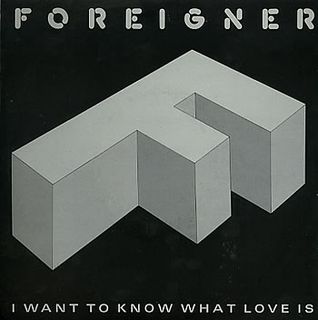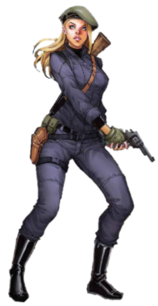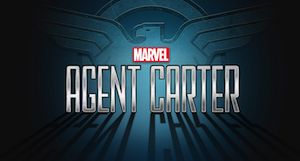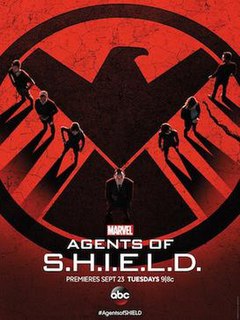
Artificial intelligence (AI) is intelligence demonstrated by machines, unlike the natural intelligence displayed by humans and animals, which involves consciousness and emotionality. The distinction between the former and the latter categories is often revealed by the acronym chosen. 'Strong' AI is usually labelled as artificial general intelligence (AGI) while attempts to emulate 'natural' intelligence have been called artificial biological intelligence (ABI). Leading AI textbooks define the field as the study of "intelligent agents": any device that perceives its environment and takes actions that maximize its chance of achieving its goals. Colloquially, the term "artificial intelligence" is often used to describe machines that mimic "cognitive" functions that humans associate with the human mind, such as "learning" and "problem solving".

Consequentialism is a class of normative, teleological ethical theories that holds that the consequences of one's conduct are the ultimate basis for any judgment about the rightness or wrongness of that conduct. Thus, from a consequentialist standpoint, a morally right act is one that will produce a good outcome. Consequentialism, along with eudaimonism, falls under the broader category of teleological ethics, a group of views which claim that the moral value of any act consists in its tendency to produce things of intrinsic value. Consequentialists hold in general that an act is right if and only if the act will produce, will probably produce, or is intended to produce, a greater balance of good over evil than any available alternative. Different consequentialist theories differ in how they define moral goods, with chief candidates including pleasure, the absence of pain, the satisfaction of one's preferences, and broader notions of the "general good".

Alecia Beth Moore, known professionally as Pink, is an American singer and songwriter. She was originally a member of the girl group Choice. In 1995, LaFace Records saw potential in Pink and offered her a solo recording contract. Her R&B-influenced debut studio album Can't Take Me Home (2000) was certified double-platinum in the United States and spawned two Billboard Hot 100 top-ten songs: "There You Go" and "Most Girls". She gained further recognition with the collaborative single "Lady Marmalade" from the Moulin Rouge! soundtrack, which topped many charts worldwide. Refocusing her sound to pop rock with her second studio album Missundaztood (2001), the album sold more than 13 million copies worldwide and yielded the international number-one songs "Get the Party Started", "Don't Let Me Get Me", and "Just Like a Pill".

Tit for tat is an English saying meaning "equivalent retaliation". It developed from "tip for tap", first recorded in 1558.

What If, sometimes rendered as What If...?, is a comic book anthology series published by Marvel Comics whose stories explore how the Marvel Universe might have unfolded if key moments in its history had not occurred as they did in mainstream continuity. Since What If debuted in 1977, the comics have been published in 13 series as well as occasional stand-alone issues.

Mechanism design is a field in economics and game theory that takes an objectives-first approach to designing economic mechanisms or incentives, toward desired objectives, in strategic settings, where players act rationally. Because it starts at the end of the game, then goes backwards, it is also called reverse game theory. It has broad applications, from economics and politics in such fields as market design, auction theory and social choice theory to networked-systems.
A complex adaptive system is a system that is complex in that it is a dynamic network of interactions, but the behavior of the ensemble may not be predictable according to the behavior of the components. It is adaptive in that the individual and collective behavior mutate and self-organize corresponding to the change-initiating micro-event or collection of events. It is a "complex macroscopic collection" of relatively "similar and partially connected micro-structures" formed in order to adapt to the changing environment and increase their survivability as a macro-structure. The Complex Adaptive Systems approach builds on replicator dynamics.

"Flashdance...What a Feeling" is a song from the 1983 film Flashdance, written by Giorgio Moroder (music), Keith Forsey and Irene Cara (lyrics), and performed by Cara. The song is in the key of B♭ Major and has a tempo of 122 beats per minute.
In philosophy, moral responsibility is the status of morally deserving praise, blame, reward, or punishment for an act or omission in accordance with one's moral obligations. Deciding what counts as "morally obligatory" is a principal concern of ethics.

"I Want to Know What Love Is" is a power ballad by the British-American rock band Foreigner. It was released in November 1984 as the lead single from their fifth album, Agent Provocateur. The song hit number one in both the United Kingdom and the United States and is the group's biggest hit to date. It remains one of the band's best-known songs and most enduring radio hits, charting in the top 25 in 2000, 2001, and 2002 on the Billboard Hot Adult Contemporary Recurrents chart. "I Want to Know What Love Is" has continued to garner critical acclaim, and is listed as one of Rolling Stone magazine's greatest songs of all time at number 479. The song is also featured in a number of films.

The Agents of Atlas are a fictional superhero team appearing in American comic books published by Marvel Comics. The first lineup was composed of characters originally appearing in unrelated stories published in the 1950s by Marvel's predecessor company, Atlas Comics. The characters debuted as a team in What If #9 and starred in the 2006 limited series Agents of Atlas, written by Jeff Parker and with art by Leonard Kirk.
"Grace Period" is the 19th episode in the fourth season, and the 89th overall episode, of the American crime drama television series NCIS. It first aired on CBS in the United States on April 3, 2007. The episode is written by John Kelly and directed by James Whitmore, Jr., and was seen by 13.79 million viewers.
In philosophy, objectivity is the concept of truth independent from individual subjectivity. A proposition is considered to have objective truth when its truth conditions are met without bias caused by a sentient subject. Scientific objectivity refers to the ability to judge without partiality or external influence. Objectivity in the moral framework calls for moral codes to be assessed based on the well-being of the people in the society that follow it. Moral objectivity also calls for moral codes to be compared to one another through a set of universal facts and not through Subjectivity.

Margaret Elizabeth Carter is a fictional character appearing in American comic books published by Marvel Comics. She is usually depicted as a supporting character in books featuring Captain America. Created by writer Stan Lee and artist Jack Kirby, she debuted, unnamed, in Tales of Suspense #75 as a World War II love interest of Steve Rogers in flashback sequences. She would later be better known as a relative of Captain America's modern-day significant other, Sharon Carter.

Marvel's Agents of S.H.I.E.L.D. is an American television series created by Joss Whedon, Jed Whedon, and Maurissa Tancharoen for ABC, about the fictional organization S.H.I.E.L.D., a peacekeeping and spy agency in a world of superheroes, based on the Marvel Comics organization of the same name. It is set in the Marvel Cinematic Universe (MCU) and acknowledges the continuity of the franchise's films and other television series. The series was produced by ABC Studios, Marvel Television, and Mutant Enemy Productions, with Jed Whedon, Maurissa Tancharoen, and Jeffrey Bell serving as showrunners.

Marvel's Agent Carter, or simply Agent Carter, is an American television series created by Christopher Markus & Stephen McFeely for ABC, featuring the Marvel Comics character Peggy Carter following her roles in the 2011 film Captain America: The First Avenger and the 2013 Marvel One-Shot short film of Agent Carter. It is set in the Marvel Cinematic Universe (MCU) and shares continuity with the franchise's films and other television series. The series was produced by ABC Studios, Marvel Television, and F&B Fazekas & Butters, with Tara Butters, Michele Fazekas, and Chris Dingess serving as showrunners.

The second season of the American television series Agents of S.H.I.E.L.D., based on the Marvel Comics organization S.H.I.E.L.D., follows Phil Coulson and his team of S.H.I.E.L.D. agents and allies as they attempt to rebuild the organization after it was revealed to have been infiltrated by Hydra in the film Captain America: The Winter Soldier (2014). The season is set in the Marvel Cinematic Universe (MCU) and acknowledges the continuity of the franchise's films and other television series. It was produced by ABC Studios, Marvel Television, and Mutant Enemy Productions, with Jed Whedon, Maurissa Tancharoen, and Jeffrey Bell serving as showrunners.

The third season of the American television series Agents of S.H.I.E.L.D., based on the Marvel Comics organization S.H.I.E.L.D., follows Phil Coulson and his team of S.H.I.E.L.D. agents and Inhumans as they face new threats to the world. It is set in the Marvel Cinematic Universe (MCU) and acknowledges the continuity of the franchise's films. The season was produced by ABC Studios, Marvel Television, and Mutant Enemy Productions, with Jed Whedon, Maurissa Tancharoen, and Jeffrey Bell serving as showrunners.

The fourth season of the American television series Agents of S.H.I.E.L.D., based on the Marvel Comics organization S.H.I.E.L.D., follows Phil Coulson and other S.H.I.E.L.D. agents and allies after the signing of the Sokovia Accords. It is set in the Marvel Cinematic Universe (MCU) and acknowledges the continuity of the franchise's films. The season was produced by ABC Studios, Marvel Television, and Mutant Enemy Productions, with Jed Whedon, Maurissa Tancharoen, and Jeffrey Bell serving as showrunners.















